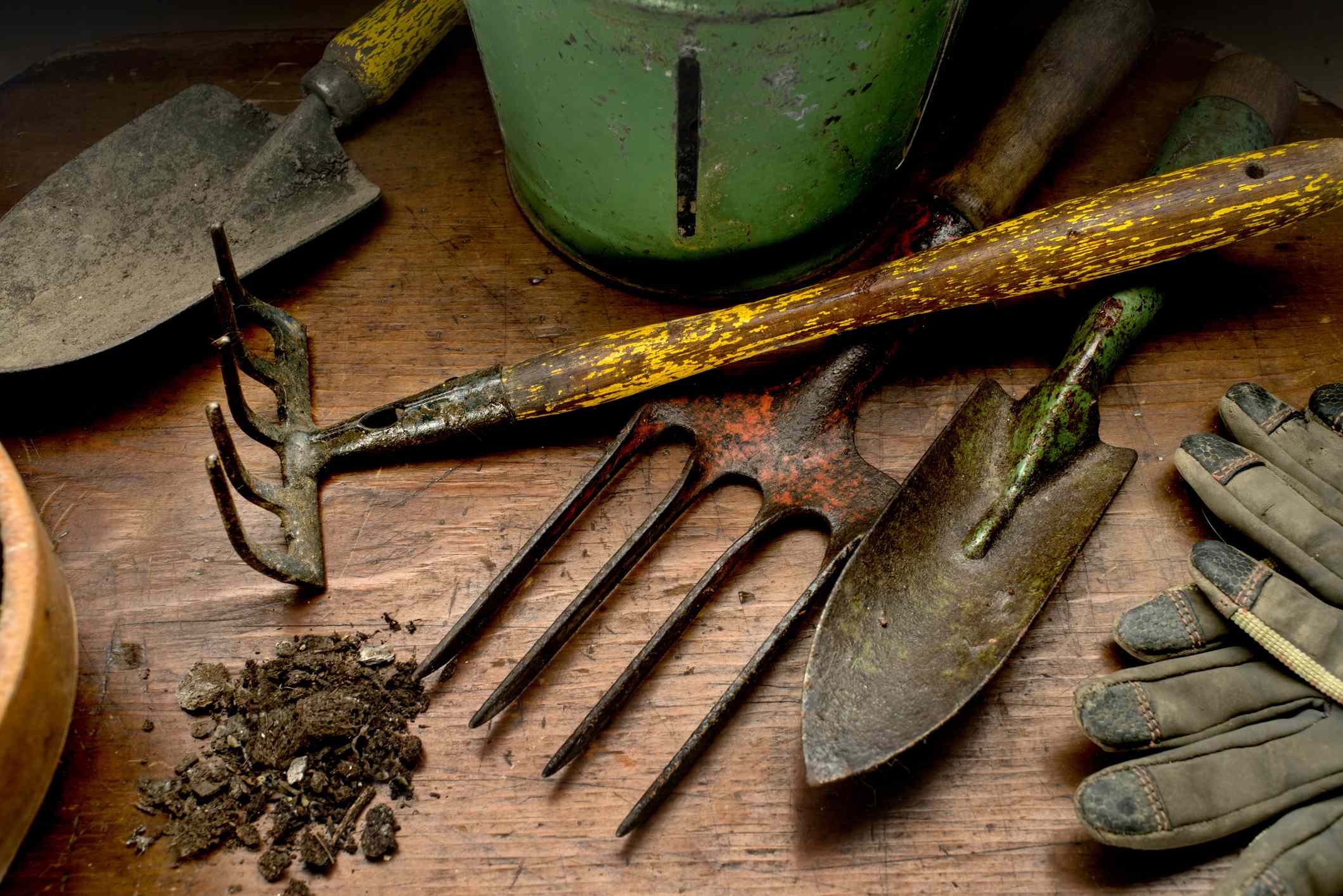Key Takeaways
- Vinegar’s natural acidity helps loosen rust and dirt from your gardening tools with little to no effort.
- Regularly cleaning gardening tools prolongs their lifespan and minimizes cross-contamination.
- Your garden tools also benefit from consistent lubrication and blade sharpening, if applicable.
When it comes to tackling household chores, cleaning your gardening tools might not rank high on the list of what needs to get done at all, let alone urgently. They’re just going to go right back in the dirt anyway, right?
Perhaps, but if you want to maximize your tools’ functionality and extend their usage, it’s a good idea to give them a thorough clean somewhat regularly.
Why Cleaning Gardening Tools With Vinegar Is so Easy
Kate Stoupas / Getty Images
Thanks to white vinegar’s high acidity, it’s effective for cleaning your gardening tools for all the same reasons it’s a great option for descaling your bathroom or cleaning your kitchen appliances.
With little to no effort, distilled white vinegar helps loosen rust and dirt. As you probably know, these are the two main offenders when it comes to dirty gardening tools.
Best of all, this process doesn’t call for much vigorous cleaning, While you’ll have the best results if you do some minor prep work and plan to clean off any excess rust or dirt after, the true power happens as the tools soak in the vinegar, allowing the acid to do all the work.
Why It’s Important to Keep Garden Tools Clean
Over time, the build-up of dirt and rust can have a negative impact on how effective your tools are, as well as how long they last. Eventually, they can even make your tools less safe to use. Much like a dull kitchen knife is more likely to lead to injury, your bladed garden tools can carry the same risk.
Beyond the functionality and safety of your tools, there’s also a hygienic component. Vinegar can help remove bacteria and pests from your gardening tools that might otherwise cross-contaminate your plants and spread common diseases such as various types of blights and mildew.
Want more gardening tips? Sign up for our free gardening newsletter for our best growing tips, troubleshooting hacks, and more!
How to Use Vinegar to Clean Garden Tools
If you think of your dirty garden tools the same way you might consider messy, used dishes and flatware, then the process for cleaning them will probably sound familiar. And with the use of a gentle, non-toxic option like vinegar, it’s not at all intimidating or difficult.
- Gather your ingredients. For this process, you’ll need a large bucket, enough white vinegar to submerge the metal parts of your tools thoroughly, and a microfiber cloth or towel.
- Remove dirt chunks. Shake off or remove any large pieces of debris by hand, such as caked-on dirt or pieces of rust.
- Soak in vinegar. Soak tools in a vinegar bath, ensuring the items are submerged enough that the vinegar is effectively covering each piece.
- Scour off any remaining dirt or rust. Using a scouring pad, focus on any tricky spots like within hinges. The goal here is to remove any remaining dirt or stubborn spots of rust.
- Dry thoroughly. Dry the tools thoroughly with a soft rag and let them sit for longer to dry if necessary. Storing away when still wet will only cause more rust.
- Sharpen, if applicable, and oil. After the tools are dry, consider sharpening the blades with a dedicated tool—such as a sharpening stone—and oiling any metal areas to prevent rust build-up.
Tips for Cleaning Gardening Tools
Krit of Studio OMG / Getty Images
Along with soaking your tools in vinegar, there are other effective ways you can clean your gardening tools thoroughly. These tips should prolong the life of your tools, and make them safer and more efficient.
- Lubricate your tools after cleaning. You can use a dedicated product this, or a natural alternative, such as linseed oil.
- Consider using a dedicated disinfectant fluid that’s meant to clean gardening tools if you prefer not to use vinegar.
- Invest in a sharpening stone to regularly sharpen gardening tools, both for functionality and safety.
- Give your gardening tools a quick clean after every use, and a thorough deep clean annually. This is best done at the end of the season, before storing everything away for the winter.
- Never store gardening tools when they’re still wet, and consider using a rust repellent spray as needed to prevent further rust build-up.
Many of these options can be used in conjunction with white vinegar, or you can swap out the bath for a different solution. This will likely depend on the severity or age of your tools, as well as your own tolerance for cleaning with vinegar.











